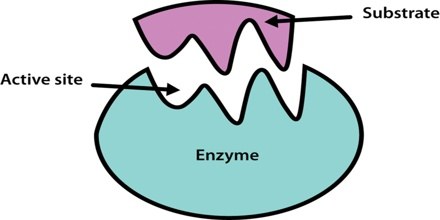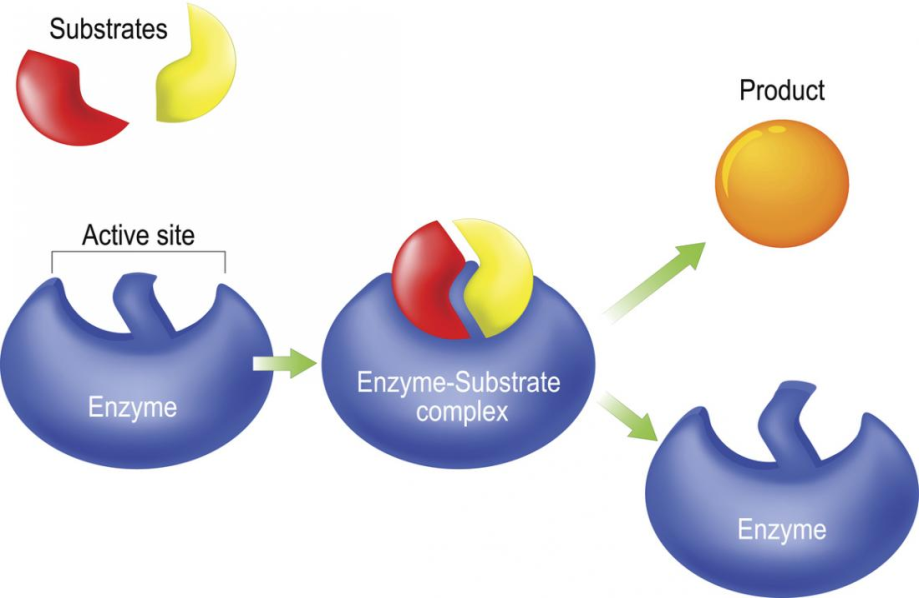Enzymes are the biological molecules, that speed up the chemical reactions in the living organisms. They alter the molecules by binding to them in a specific way. They are essential for food digestion, respiration, for the functioning of nerves and muscles, and have various other roles. Enzymes are made up of proteins, and they are folded into complicated shapes and are present in all the body parts. Metabolism is an important chemical reaction that keeps us alive and it strongly depends on the action of enzymes. Enzymes catalyze the chemical reactions, and in some cases, they can speed up the chemical reaction, million times faster, than without the presence of enzymes.


On the enzymes, a substrate binds to the active site and is converted to the products. When the products leave its active site, the enzyme is readily attached to the new substrate and the processes are repeated again and again. Enzyme is a catalyst for the biochemical reactions and in the living organisms. Enzymes perform the critical task to lower the activation energy of the reaction that is the amount of energy required for the reaction to start. The working of enzymes is to bind the reactant molecules and to hold them in such a way that bond-forming and bond-breaking processes can take place more readily. ∆G value of a reaction is not changed by the enzymes. So, enzymes do not affect the overall energy absorbing or energy releasing of reaction. This is because of the reason that the free energy of products or reactants is not affected by the enzymes. Instead, the energy of transition state is lowered by the enzyme, which is an unstable state and the products should pass through it to become products from the reactants.
Enzymes bind to the one or more reactant molecule, for catalyzing the reaction. These molecules are the substrates of the enzymes. This substrate can be broken down to multiple products and also two substrates can react together to make the larger molecules. The action happens on the catalytic site, which is the place where the substrate binds to the enzyme. Enzymes are very sensitive to the environment, or to the conditions, in which they have to work. A small fluctuation in the pH and temperature changes their reactivity. A very high temperature may cause the denaturing of the enzymes. The best working of enzymes is only possible within the certain range of pH, extreme pH values also denature the enzymes.